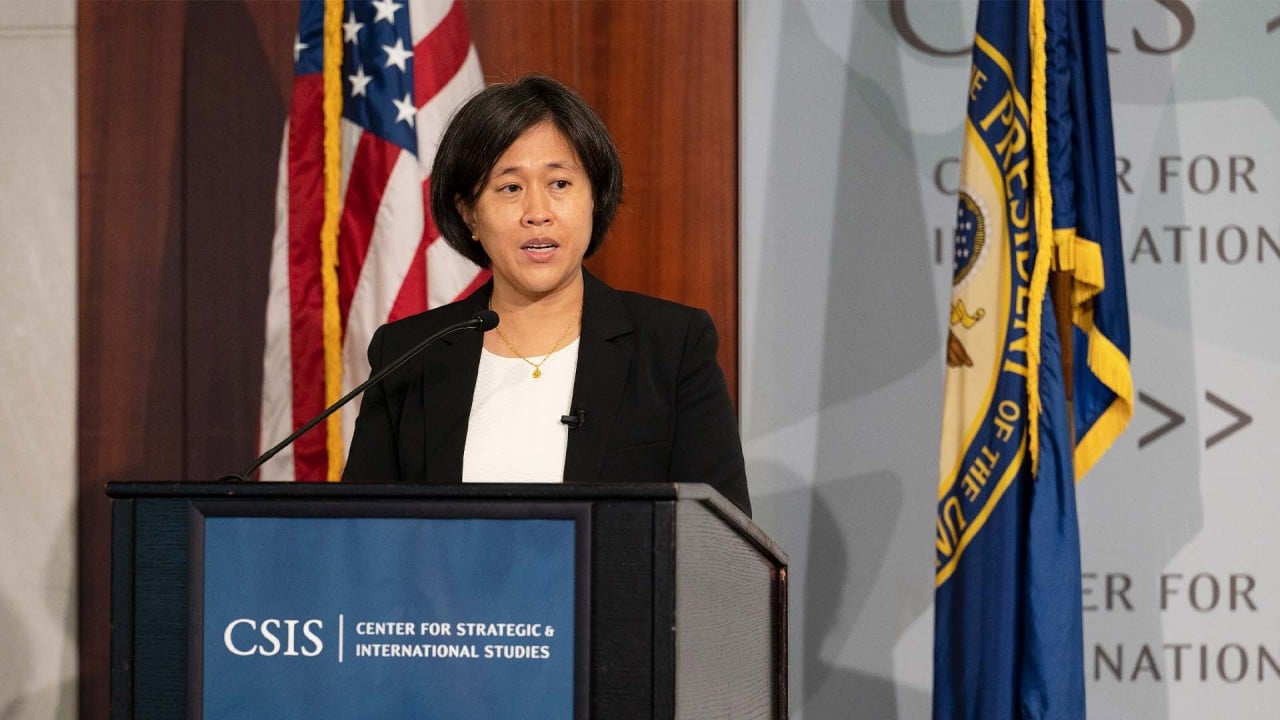
US to ask for public comment on reinstating tariff exclusions on Chinese goods
- New move by Washington suggests the Trump-era hard line on Chinese imports will continue, at least in the short term
- US Trade Representative’s Office says decisions will be made on a case-by-case basis after a 50-day comment period
The step suggests that the Biden administration is not currently moving to take a softer line on trade with China than the previous administration under former president Donald Trump, at least as far as tariffs are concerned.
It came one day after Biden’s top trade negotiator, Katherine Tai, said that she was considering such steps. The US Trade Representative’s Office said on Tuesday that each potential reinstatement of a tariff exemption would be evaluated on a case-by-case basis.
“The exclusions process is a key part of the Biden-Harris administration’s deliberative, long-term vision for realigning the US-China trade relationship around our priorities and making trade work for American workers and businesses,” the office said.

02:18
US trade chief calls for ‘pragmatic approach’ in reveal of China strategy
Washington and Beijing have lobbed tariffs at each other on billions of dollars worth of goods since Trump began the trade war in 2018.
The trade representative’s office said that if it granted any exemptions after the 50-day public comment period, they would apply to the same list of 549 goods that had already received exemptions – which were then extended – during the Trump era. The Trump administration had initially issued more than 2200 exemptions, most of which expired and were not extended.
The Biden and Trump administrations had both undertaken a similar exemption process for allowing in Chinese goods needed to help fight the coronavirus pandemic, such as masks and gloves.
Many observers in the US were frustrated after Tai’s speech on Monday because they said it lacked details about how far the administration planned to go with its tariff exclusion process. But others eager to see the trade war wind down were hopeful that Tai was signalling that the Biden administration planned to ease off on the tariffs.
While Beijing has yet to publicly respond to Tai’s address – China is currently in the midst of weeklong National Day celebrations – comments from Chinese trade experts earlier on Tuesday, before the announcement, indicated that the speech had been generally well received in the country.
Among the welcome elements was the news of the tariff exclusion process and Tai’s comments that economic decoupling was not a “realistic” prospect, Tu Xinquan, dean of the China Institute for WTO Studies at the University of International Business and Economics in Beijing, said at an event hosted by the Centre for Strategic and International Studies.
Citing the impact on both exporters and importers, Tu said the acceleration of exclusion processes in both countries was the “pragmatic way to solve the tariff issue”.
The recent call between Biden and Chinese President Xi Jinping, in which the two leaders discussed ways to manage competition and prevent unintended conflict, had laid a “good basis” for both sides to push ahead with the exclusions, Tu said.
The Chinese goods that could potentially be re-excluded from tariffs come from a wide array of industries. They include junction boxes and glass sheets used with solar panels; electric motors and gasoline engines; pianos; cotton blankets; and backpacks.
Additional reporting by Owen Churchill

